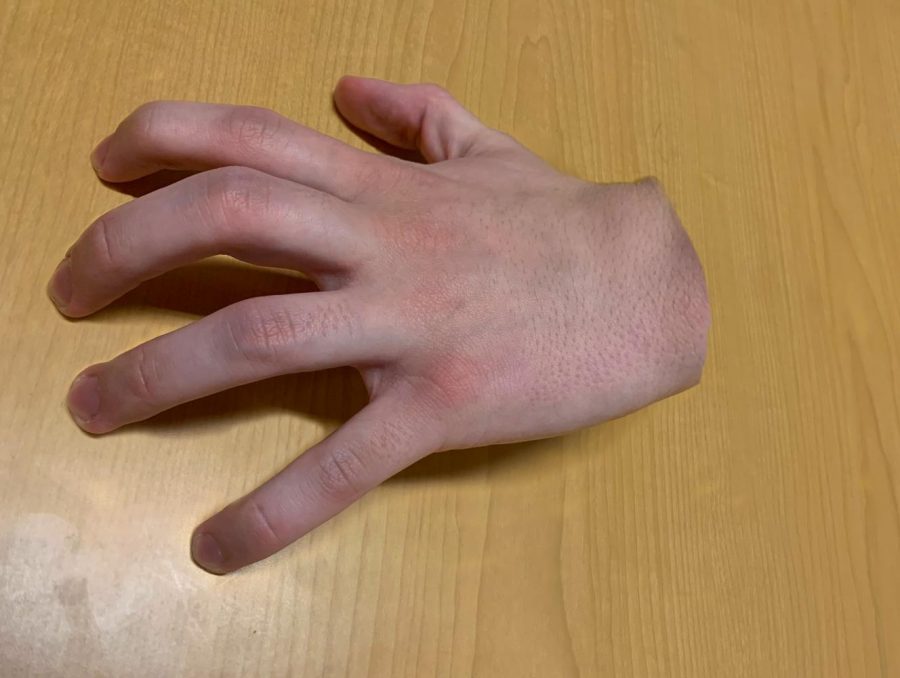Content warning: this article contains spoilers
Why can’t French films ever just be normal? Just once. Must everything be beautiful and profound, not just in spite of, but because of its strangeness? Maybe not, but this is certainly the case for “I Lost My Body,” written and directed by Jérémy Clapin. The movie was adapted from the novel “Happy Hand,” written by Guillaume Laurant. Told from a dual perspective of both the hand and its previous owner, Naoufel (Hakim Faris), through different timelines, the film follows the story of a severed hand on an epic journey to return to its body.
One of the most distinct aspects of the film lies in its animation. With companies like Pixar and Studio Ghibli producing stories like “Spirited Away,” animation has proven itself as a medium for far more beautiful and deep subjects than just Saturday morning cartoons. The animation and imagery ranges from a flat, broad and black-and-white picture with images that seems to deliberately exclude details and relies on subject, to gorgeous movements, colors and angles. The colorless sequences emphasize the discovery of a tactile world, such as letting sand fall through your fingers and playing the piano with surprising and tender efficacy, while the more brilliant images highlight the beauty and magnificence of our world, even at its most quotidian, gross and terrifying.
“I Lost My Body” follows three different timelines, focusing on Naoufel. First, as a boy in Rabat, Morocco, full of dreams of becoming an astronaut/concert pianist, Naoufel is forced to emigrate to live with his uncle and cousin in Paris following the death of his parents. His uncle is greedy and his cousin is profoundly shallow, bordering on mean.
Second, as a young man in Paris, Naoufel has a job delivering pizzas on a scooter and falls in love with a woman over her building’s intercom after he’s late delivering a pizza to her apartment. Falling in love with Gabrielle (Victoire du Bois) sets him down a path, leading to the event whereby he loses his hand.
The third timeline focuses on Naoufel’s now-severed hand, cut off just above the wrist, as it escapes from a dissection lab and winds its way across Paris to return to its body. The hand’s return is an epic of Homeric proportions. It struggles to use its fingers and thumb to move and fight; it bravely faces and narrowly escapes a pigeon, rats and a seeing eye dog, witnesses beauty and overcomes fear in order to return to its body.
Clapin’s movie presents a beautiful and profound meditation on loss, grief, solitude and pain. It explores the ways in which human beings grow and experience the world, the things and people that allow us to explore our lives and ourselves, and the crippling pain of losing them. And if you’re not into that, watching the hand traverse Paris provides enough heart-pounding excitement to turn “I Lost My Body” into an adventure movie. Conveniently, the movie’s available on Netflix now.
Email Ben Linder at [email protected].






















































































































































